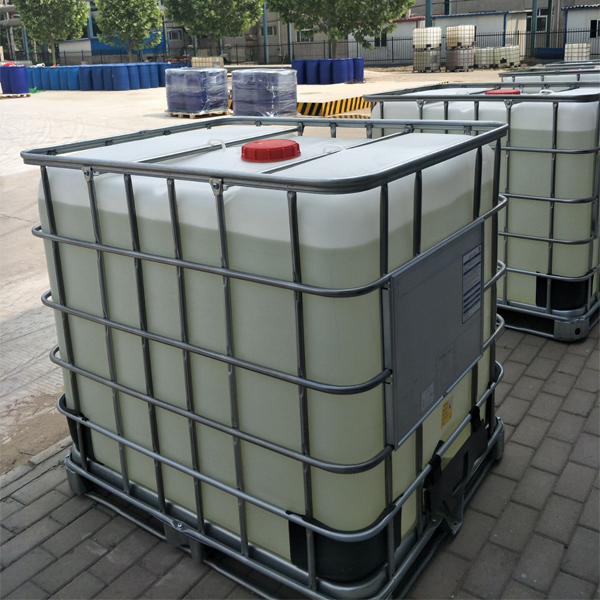
News
Déc . 10, 2024 15:26 Back to list
versene acid chelating agent
Versene Acid A Powerful Chelating Agent
In the realm of chemistry, chelation plays a crucial role in various applications, from agriculture to medicine. One prominent chelating agent is Versene acid, scientifically known as ethylenediaminetetraacetic acid (EDTA). This multifunctional compound has become an important tool in numerous fields due to its ability to bind metal ions and enhance the bioavailability of nutrients, as well as its applications in detoxification. This article delves into the properties, applications, and significance of Versene acid.
What is Versene Acid?
Versene acid, or EDTA, is a synthetic amino acid that functions primarily as a chelating agent. Its molecular structure contains four carboxyl groups and two amine groups, which confer its ability to form stable complexes with metal ions. This property allows Versene to capture and hold onto metals such as calcium, magnesium, and lead, making them more soluble and easier to transport in various solutions.
Properties of Versene Acid
Versene acid is a white crystalline powder that is soluble in water. It has a high stability constant, which means that the complexes it forms with metal ions are typically very stable. This stability is essential for its effectiveness in various applications. Furthermore, EDTA is available in several forms disodium, tetrasodium, and tripotassium salts, each having slightly different solubility and stability characteristics suited for specific applications.
Applications of Versene Acid
1. Agriculture In agricultural settings, Versene acid is frequently used to enhance the availability of micronutrients in soil. Many plants require trace elements like iron, manganese, and zinc for optimal growth. However, these elements can become locked in forms that plants cannot absorb. By chelating these metals, EDTA ensures that they remain soluble and accessible to plant roots, thus promoting healthier growth and improving crop yields.
versene acid chelating agent

2. Medicine EDTA is extensively utilized in the medical field, particularly in chelation therapy for treating heavy metal poisoning. When administered, Versene acid binds to toxic metals such as lead or mercury present in the bloodstream, facilitating their excretion from the body through urine. This application highlights the importance of EDTA not only as a therapeutic agent but also as a preventive measure against heavy metal toxicity.
3. Industrial Uses In various industrial processes, EDTA plays a role as a cleaning and stabilizing agent. It is commonly used in formulations like detergents and soaps, where it helps to prevent the precipitation of minerals that can interfere with cleaning efficacy. In the food industry, Versene acid serves as a preservative, particularly in processed foods, by preventing the oxidation of certain nutrients and maintaining color and flavor.
4. Water Treatment Water quality management has also greatly benefited from the use of Versene acid. It is utilized in water treatment processes to remove metallic impurities, such as calcium and magnesium, which can lead to hardness in water. By treating water with EDTA, industries can achieve a higher quality of water for both industrial applications and consumer use.
Environmental Impact and Safety
While Versene acid exhibits a plethora of benefits across various sectors, it is essential to consider its environmental impact. Given its widespread use, there are potential concerns related to the persistence of EDTA in the environment. Research indicates that while EDTA is biodegradable under certain conditions, it can also pose a risk of bioaccumulation in aquatic systems. Consequently, regulatory oversight and responsible usage are imperative to mitigate any negative consequences.
In terms of safety, EDTA is generally considered non-toxic when used at recommended levels. However, like any chemical, it is essential to follow safety guidelines and recommendations regarding its handling and application.
Conclusion
Versene acid is undeniably a vital chelating agent with diverse applications across agriculture, medicine, industry, and environmental management. Its ability to bind metal ions has revolutionized practices in these fields, enhancing nutrient availability, treating heavy metal toxicity, and improving product efficacy. Despite concerns about its environmental impact, careful application and continued research can ensure that the benefits of EDTA, or Versene acid, can be harnessed while minimizing drawbacks. As science progresses, the future of this remarkable chelating agent remains promising, with potential new applications continuing to emerge.
-
Polyaspartic Acid Salts in Agricultural Fertilizers: A Sustainable Solution
NewsJul.21,2025
-
OEM Chelating Agent Preservative Supplier & Manufacturer High-Quality Customized Solutions
NewsJul.08,2025
-
OEM Potassium Chelating Agent Manufacturer - Custom Potassium Oxalate & Citrate Solutions
NewsJul.08,2025
-
OEM Pentasodium DTPA Chelating Agent Supplier & Manufacturer High Purity & Cost-Effective Solutions
NewsJul.08,2025
-
High-Efficiency Chelated Trace Elements Fertilizer Bulk Supplier & Manufacturer Quotes
NewsJul.07,2025
-
High Quality K Formation for a Chelating Agent – Reliable Manufacturer & Supplier
NewsJul.07,2025
